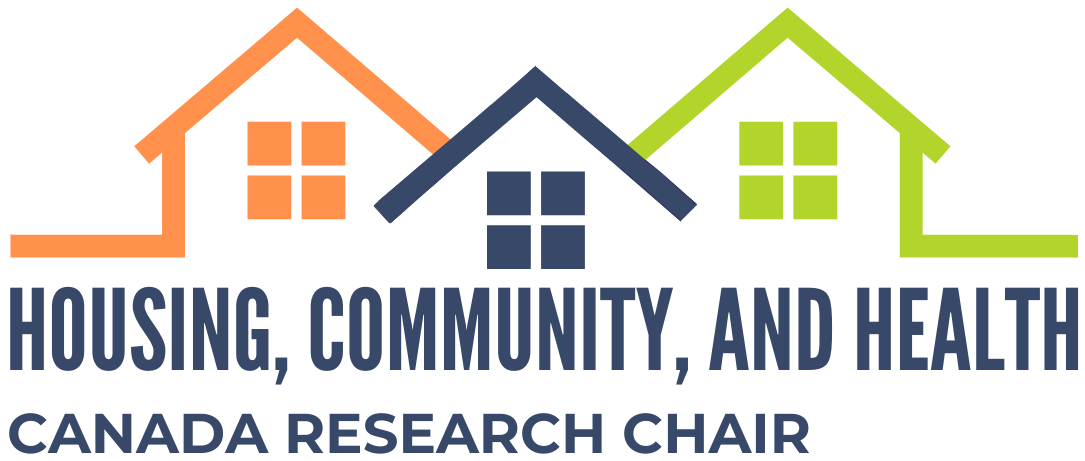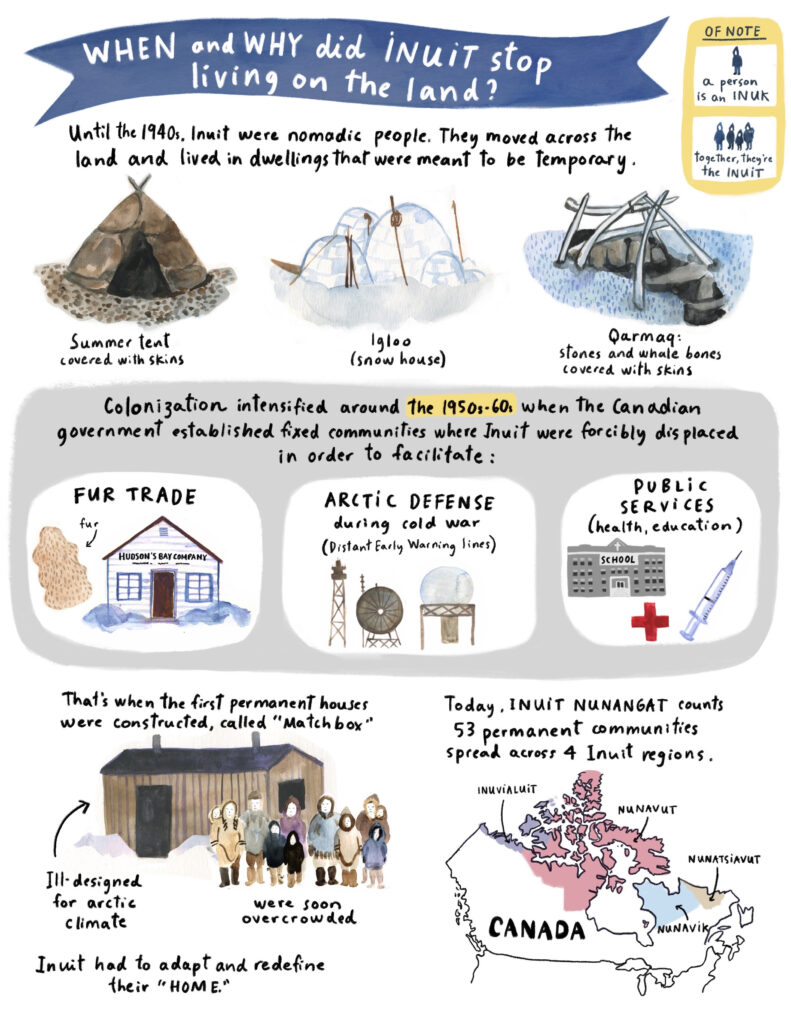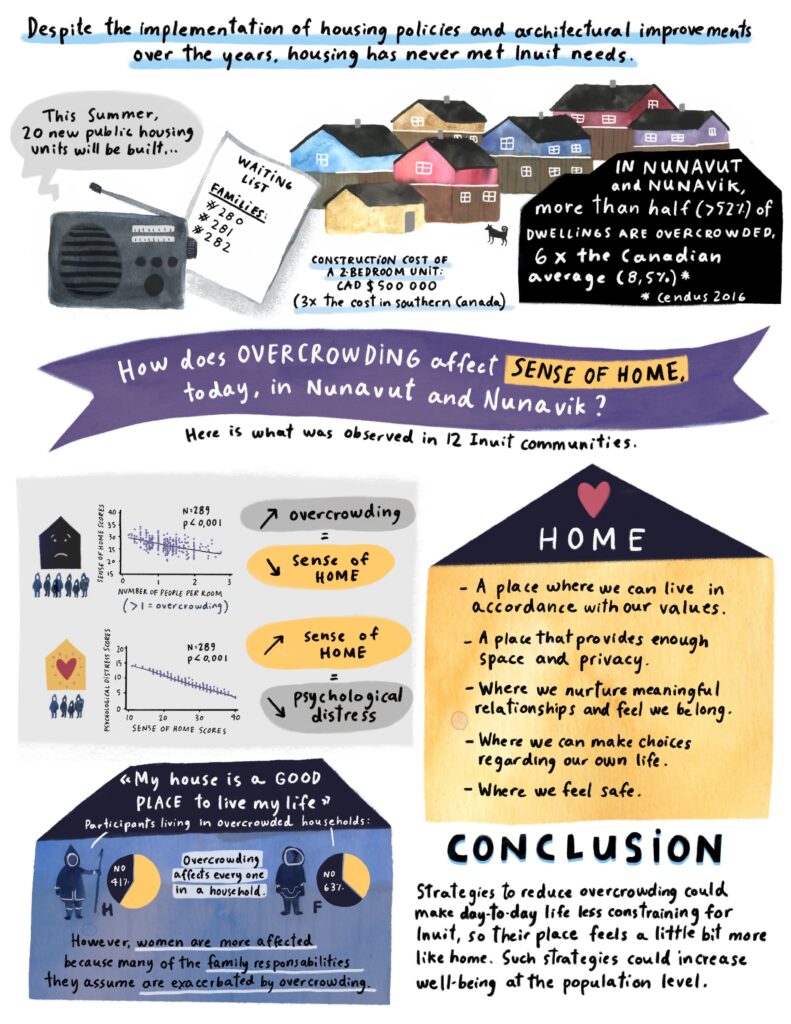Housing conditions are recognized as a key determinant of health with effects across the lifespan. In 2011, over 12% of Canadian households were in core housing need, with the most egregious housing-related inequities experienced by Indigenous Peoples.
Access to adequate housing is a social, ecological, and health problem in Indigenous communities across Canada. Investments in housing construction in most Indigenous communities have never been adequate to meet needs, and overcrowding and poor-quality housing are still commonplace.
Housing-related projects of the CRC in Housing, Community, and Health will improve our understanding of the health and well-being impacts of housing conditions, interventions, and policies for Inuit and First Nations populations. They will also provide high-quality evidence for the implementation of social, housing, and land-use planning policies to create communities that are supportive for health.
At Home in the North
 This project aims to facilitate connections and collaborations between communities in the territorial and provincial Norths that are experiencing homelessness and housing insecurity. Bringing together partners across academia, government and advocacy, the project creates, shares and mobilizes knowledge on homelessness and housing insecurity. It identifies possibilities for culturally-safe, contextually-relevant housing creation and construction, housing programs, and wrap-around social supports for northerners experiencing housing insecurity and homelessness. In doing so, it expands understanding and fills knowledge gaps concerning northern homelessness and housing insecurity across Canada’s Norths and ultimately fills these gaps through the development of a Northern Housing Strategy.
This project aims to facilitate connections and collaborations between communities in the territorial and provincial Norths that are experiencing homelessness and housing insecurity. Bringing together partners across academia, government and advocacy, the project creates, shares and mobilizes knowledge on homelessness and housing insecurity. It identifies possibilities for culturally-safe, contextually-relevant housing creation and construction, housing programs, and wrap-around social supports for northerners experiencing housing insecurity and homelessness. In doing so, it expands understanding and fills knowledge gaps concerning northern homelessness and housing insecurity across Canada’s Norths and ultimately fills these gaps through the development of a Northern Housing Strategy.
Prof. Riva serves on the executive committee for this project and is the co-lead of the Health Synthesis Stream focus area. The project is led by Dr. Julia Christensen, CRC in Northern Governance and Public Policy, and hosted by Memorial University of Newfoundland (MUN).
- Partners: Northern and Indigenous Organizations and Community Partners | Academic Institutions | View full list
- Funding: Social Sciences and Humanities Research Council of Canada, Canada Mortgage and Housing Association
- Project website
Community-led housing in the Canadian North
Mobilizing the development of supportive housing plans through knowledge sharing and engagement in the NWT and Nunavut
Despite the growing body of research that documents factors contributing to homelessness and quantifies rates of core housing need, the northern housing crisis continues to deepen. Northern communities are thus calling for support to develop and implement supportive housing programs that directly address their needs, sustain health and healthy relationships, and promote culturally-embedded meanings attached to homemaking and individual, family, and community health.
This project integrates: 1) an examination of housing needs and relationships between housing, health, and well-being; 2) interviews aimed at defining and qualifying northern housing insecurity and homelessness; and 3) workshops designed to assess community housing needs, identify key gaps in housing- and home-related supports, and develop comprehensive, community-based supportive housing strategies in four research communities.
Prof. Riva serves as co-PI, along with Dr. Julia Christensen, on this multi-scaled, multi-sited, and interdisciplinary research program.
- Partners: NWT Housing Corporation | Hotii Ts’eeda (the NWT SPOR Support Unit) | The Institute for Circumpolar Health Research
- Funding: ArcticNet - a Network of Centres of Excellence of Canada
Improving community well-being through housing
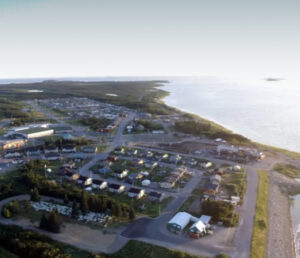
This project considers Indigenous and Northern housing, the housing requirements of those in greatest need, sustainable communities, sustainable housing, and housing supply. Its main output will be the creation of a sustainable research platform based on Indigenous/Cree research methodologies. This will facilitate understanding of housing conditions, as well as changes in housing conditions, and their relationship to individual, family, and community well-being.
The primary region of focus is the community of Eastmain, Quebec, but the project is expected to yield best practices that can be applied in other Northern Indigenous communities.
Objective: Understand the links between housing conditions and well-being in Eastmain and how culturally appropriate housing design and community planning can better foster well-being.
Prof. Riva is responsible for devising and overseeing the implementation of the research project and development of the research platform. She also provides scientific expertise and supervises the research work.
- Partners: Cree Nation of Eastmain
- Funding: Canada Mortgage and Housing Association
Canadian Housing Evidence Collaborative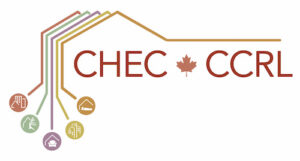
The Canadian Housing Evidence Collaborative (CHEC) is the knowledge mobilization hub for the Collaborative Housing Research Network, a pan-Canadian, cross-sectoral network dedicated to providing the evidence needed to meet the goals of Canada’s National Housing Strategy. CHEC includes five nodes of research: Community Housing | Northern Housing | Housing for those in Greatest Need | Balanced Supply in Housing, and | Sustainable Housing.
Prof. Riva serves on the Steering Committee and Indigenous Advisory Group for this project. She is also the Chair of Trainee Support for research objective three, which aims to rapidly build, attract, and retain housing research capacity.
Housing needs, neighborhood quality and mental health
In 2016, 1.7M Canadian households were in core housing need, meaning that their dwelling was overcrowded, unaffordable, or in need of major repairs. International studies suggest that poor housing conditions can have an impact on population health.
The aim of this project is to understand the spatial distribution of housing need and its association with population mental health outcomes, as well as explore the potential frictions between building healthy and sustainable neighborhoods on the one hand and housing affordability on the other. The project will assess the spatial distribution of core housing need and test associations with mental health outcomes for 5,000 tenants in Montreal. It will also test associations with other features of healthy neighborhood environments, such as access to greenness, active living environments, and access to public transit.
The type of evidence generated by the project will be paramount in informing public health authorities on where, when, and how to intervene. More broadly, the project will provide critical information to help lay the foundation for future research assessing housing interventions for their impacts on population health and for anticipating the potential for healthy city interventions to inadvertently increase social and health inequities by increasing housing unaffordability.
- Partners: Montreal Public Health | Canadian Urban Environmental Health Research Consortium
- Funding: Canadian Institutes of Health Research

Housing, health, and well-being across the Arctic: Regional, local, and family perspectives
Prof. Riva and Prof. Christopher Fletcher from Université Laval lead this population health intervention research project which brings together Inuit and Western epistemologies (ways of knowing) and methodologies (ways of doing) to assess the impacts of housing conditions on individual, family, and community health and well-being in Nunavut, Nunavik, and Nunatsiavut. This project was developed and is conducted in collaboration with Inuit housing and public health organizations and academic researchers from various disciplines.
- Partners: Nunavut Housing Corporation | Government of Nunavut Department of Health | Nunavut Tunngavik Inc. | Kativik Municipal Housing Bureau | Nunavik Regional Board of Health and Social Services | Nunavik Nutrition and Health Committee | Société d'Habitation du Québec
- Funding: Canadian Institutes of Health Research | ArcticNet - a Network of Centres of Excellence of Canada
- Updates
- Follow the project on Facebook.
- Recently published: Overcrowding and sense of home in the Canadian Arctic.
- NEW: Visual representation of results from the study. Click below to expand the images or cliquer ici pour la version française.
Illustrated by @Chloloula, Bébé et illustration
Housing and Indigenous peoples’ health: A knowledge synthesis of research and housing initiatives in support of practice, policy, and advocacy
This knowledge synthesis project will assess the state of the evidence linking housing conditions to health for Indigenous peoples as well as the range of housing interventions implemented in Indigenous communities in Canada and similar countries. This project is lead by Prof. Riva in collaboration with Prof. Christopher Fletcher, Suzanne Bruneau - head of the Aboriginal Health Unit at the Institut national de santé publique du Québec, decision makers from Indigenous public health and housing organizations, and national and international researchers. This project will provide decision makers and communities with information to support and inform decisions on housing and health issues in their regions.
Housing, access to health care, education, and employment among First Nations living on- and off-reserve: moving evidence to policy
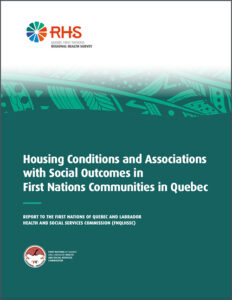 This project conducts policy-amenable research on, and translation of research about, the links between housing conditions and access to health care, education, and employment for First Nations living on reserve in the province of Quebec, and in metropolitan areas across Canada (off-reserve). It also examines indigenous housing policies implemented in Canada and elsewhere, and analyzes them for their applicability in the Montreal census metropolitan area.
This project conducts policy-amenable research on, and translation of research about, the links between housing conditions and access to health care, education, and employment for First Nations living on reserve in the province of Quebec, and in metropolitan areas across Canada (off-reserve). It also examines indigenous housing policies implemented in Canada and elsewhere, and analyzes them for their applicability in the Montreal census metropolitan area.
